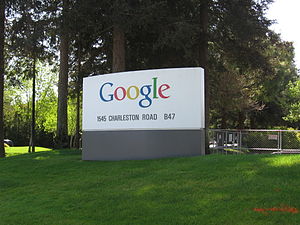
Image via Wikipedia
By BRAD STONE and MIGUEL HELFT
IT looked like the beginning of a beautiful friendship.
Three years ago, Eric E. Schmidt, the chief executive of Google, jogged onto a San Francisco stage to shake hands with Steven P. Jobs, Apple’s co-founder, to help him unveil a transformational wonder gadget — theiPhone — before throngs of journalists and adoring fans at the annual MacWorld Expo.
Google and Apple had worked together to bring Google’s search and mapping services to the iPhone, the executives told the audience, and Mr. Schmidt joked that the collaboration was so close that the two men should simply merge their companies and call them “AppleGoo.”
“Steve, my congratulations to you,” Mr. Schmidt told his corporate ally. “This product is going to be hot.” Mr. Jobs acknowledged the compliment with an ear-to-ear smile.
Today, such warmth is in short supply. Mr. Jobs, Mr. Schmidt and their companies are now engaged in a gritty battle royale over the future and shape of mobile computing and cellphones, with implications that are reverberating across the digital landscape.
In the last six months, Apple and Google have jousted over acquisitions, patents, directors, advisers and iPhone applications. Mr. Jobs and Mr. Schmidt have taken shots at each other’s companies in the media and in private exchanges with employees.
This month, Apple sued HTC, the Taiwanese maker of mobile phones that run Google’s Android operating system, contending that HTC had violated iPhone patents. The move was widely seen as the beginning of a legal assault by Apple on Google itself, as well as an attempt to slow Google’s plans to extend its dominion to mobile devices.
![Reblog this post [with Zemanta]](http://img.zemanta.com/reblog_a.png?x-id=b6659bf6-fbe1-4328-bef0-a68a7ea8f5c7)